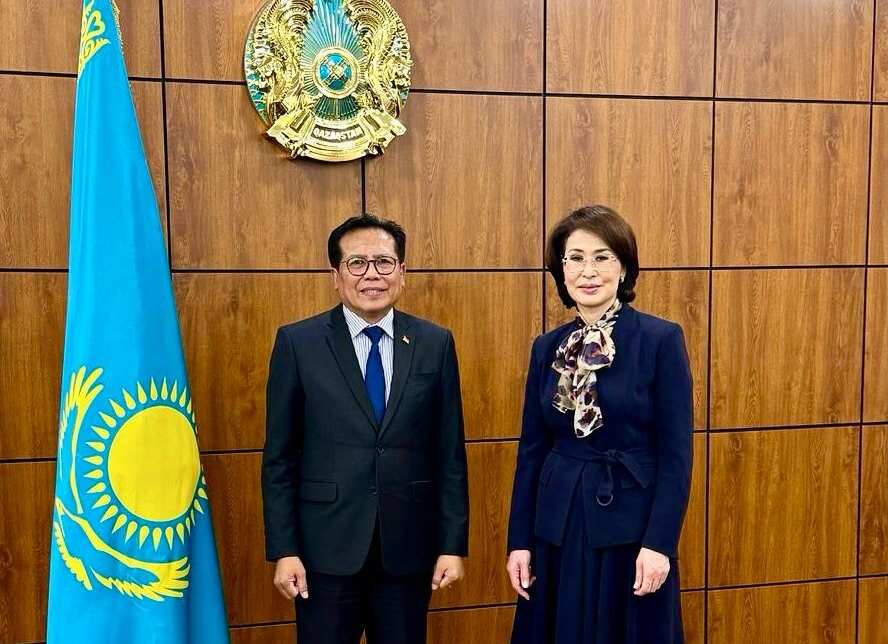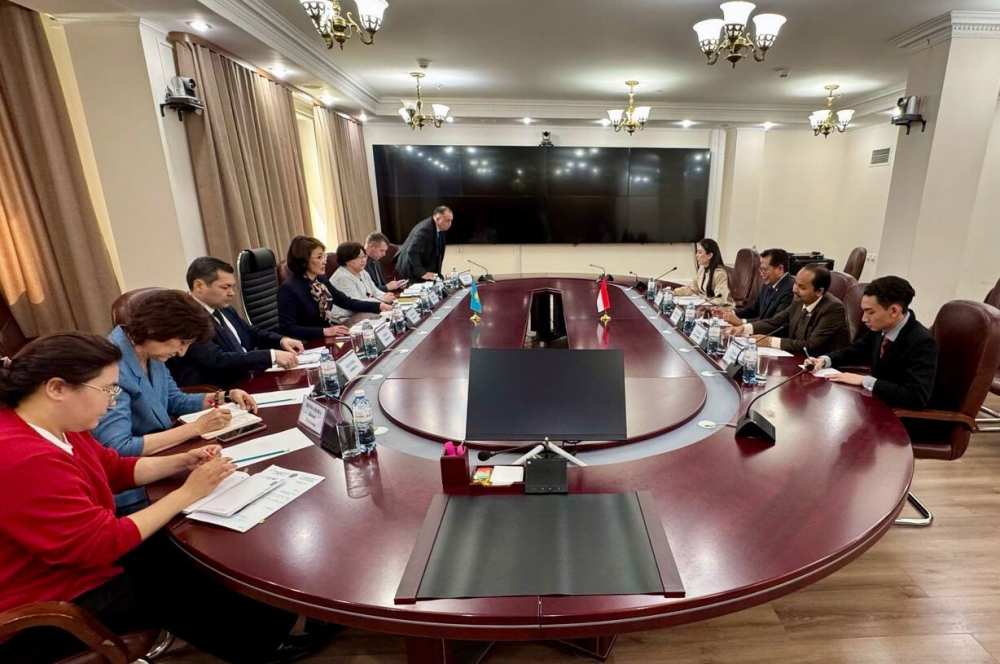(AseanAll) — The Ambassador of the Republic of Indonesia to Kazakhstan and Tajikistan, Dr. M. Fadjroel Rachman, held a meeting with the Minister of Health of Kazakhstan, Akmaral Alnazarova, at the Ministry of Health office on 28 April,2025.

The discussion focused on concrete steps to implement the Memorandum of Understanding (MoU) on Health Cooperation signed by both countries in 2021.
The MoU encompasses strategic areas including healthcare services, human resource development, pharmaceuticals, and medical equipment.
During the meeting, Fadjroel proposed the establishment of a regular bilateral technical dialogue between the Ministries of Health of Indonesia and Kazakhstan, to be facilitated by the Indonesian Embassy in Astana. The dialogue is expected to serve as a platform for the exchange of information and health policy, as well as a means of identifying mutually beneficial areas of cooperation.

Akmaral Alnazarova welcomed the proposal and recommended the development of a joint action plan for the 2025–2027 period. Both parties emphasized the strategic value of this collaboration in enhancing public health in both countries.
Several potential areas of cooperation discussed include: primary healthcare services, the development of the pharmaceutical industry, collaboration in vaccine research and development, health technology digitalization, biotechnology, medical tourism, and the exchange of policies related to nutrition, particularly regulations on trans-fat content in food products. These topics will be further reviewed by the respective cooperation divisions of both health ministries for inclusion in the joint action plan.
Kazakhstan is the most advanced economy in Central Asia and has maintained strong bilateral relations with Indonesia for over 32 years. The country has also received recognition from the World Health Organization (WHO) as a global model for best practices in primary healthcare. This recognition is rooted in the historic Alma-Ata Declaration of 1978, which laid the foundation for an equitable global model of primary healthcare for all.